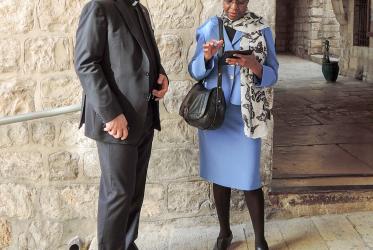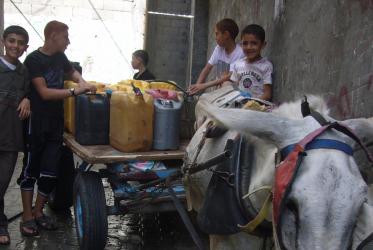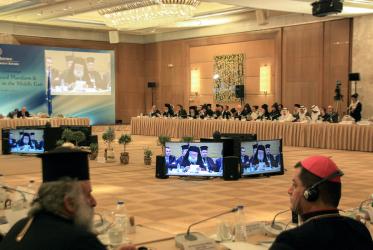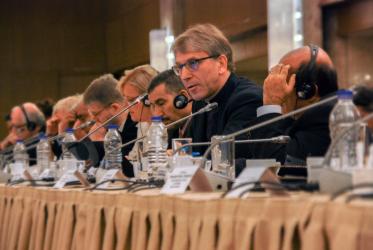Displaying 161 - 180 of 199
09 March 2017
Praying for one another, even when we disagree
02 March 2017
From Bethlehem, WCC general secretary: “Together we are stronger”
08 December 2016
WCC general secretary reflects on peace in Palestine and Israel
20 September 2016
Owe Boersma will strive for equilibrium as EAPPI coordinator
18 August 2016
Palestinian Christians face loss of land
27 April 2016
Tveit highlights unjust water resources for Palestinians
10 February 2016
Seven Weeks for Water 2016 to focus on Holy Land
05 February 2016
International conference addresses challenges in the Middle East
22 October 2015
Local and global work saves lives
22 October 2015











